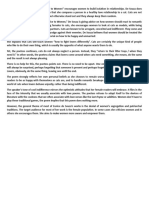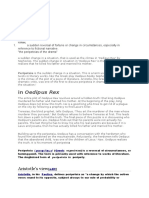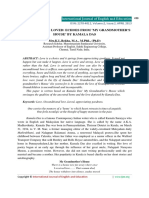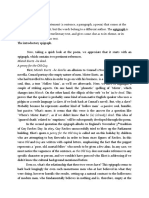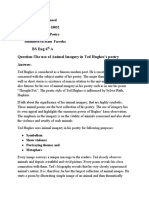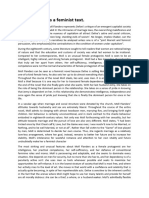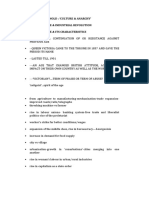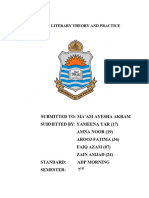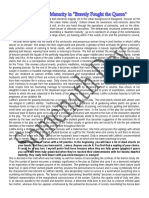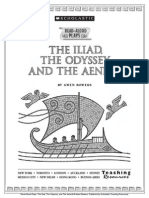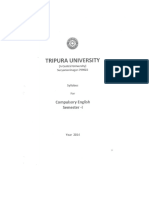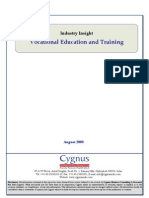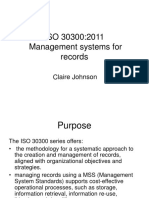0% found this document useful (0 votes)
1K views10 pagesIndianism in Nissim Ezekiel: A Study of Night of Scorpion, The Professor and
The document analyzes Indian themes and culture in selected poems by Nissim Ezekiel, including "Night of the Scorpion", focusing on his portrayal of Indian village life and the close-knit community. It discusses how the poem depicts the villagers' empathy and willingness to help one another in a time of crisis, as well as their religious beliefs and traditions. Overall, the analysis examines how Ezekiel captured aspects of Indian life and culture through his poems.
Uploaded by
Rahul Kumar SenCopyright
© © All Rights Reserved
We take content rights seriously. If you suspect this is your content, claim it here.
Available Formats
Download as PDF, TXT or read online on Scribd
0% found this document useful (0 votes)
1K views10 pagesIndianism in Nissim Ezekiel: A Study of Night of Scorpion, The Professor and
The document analyzes Indian themes and culture in selected poems by Nissim Ezekiel, including "Night of the Scorpion", focusing on his portrayal of Indian village life and the close-knit community. It discusses how the poem depicts the villagers' empathy and willingness to help one another in a time of crisis, as well as their religious beliefs and traditions. Overall, the analysis examines how Ezekiel captured aspects of Indian life and culture through his poems.
Uploaded by
Rahul Kumar SenCopyright
© © All Rights Reserved
We take content rights seriously. If you suspect this is your content, claim it here.
Available Formats
Download as PDF, TXT or read online on Scribd
/ 10









